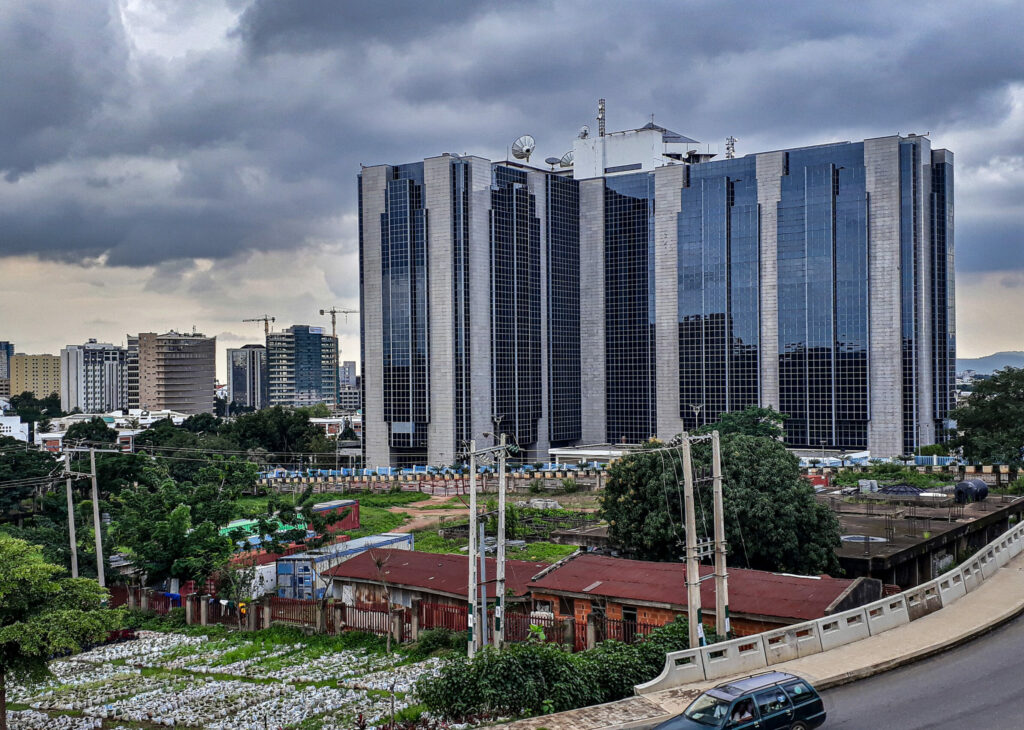The Central Bank of Nigeria has reiterated that the ongoing banking sector recapitalisation is essential for Nigeria’s ambition to become a $1 trillion economy, describing the programme as a strategic response to evolving economic realities and global financial shifts.
Speaking on Monday at a seminar for finance correspondents and business editors, in Abuja, the Director at the CBN’s Banking Supervision Department, Olubukola Akinwunmi, said the capital upgrade is not only timely but necessary to ensure banks remain robust enough to support national development targets.
“As Nigeria moves towards becoming a $1 trillion economy, the capacity of banks to support this growth trajectory becomes essential,” Mr Akinwunmi said. “The banking system is the fulcrum, through its intermediation function.”
He said that Nigeria’s bold economic aspirations demand a banking sector that is robust enough to finance transformative infrastructure, stimulate manufacturing, support agriculture, and facilitate economic diversification.
“Banks need to be adequately capitalised to support the kind of big-ticket transactions that drive economic growth. A $1 trillion economy will require banks that can provide long-term, low-cost financing for critical sectors,” Mr Akinwunmi said.
President Bola Tinubu had earlier announced the country’s target of growing the economy to $1 trillion within the next eight years, a goal likely to depend on how well domestic financial institutions can mobilise and allocate capital.
Since the CBN announced the recapitalisation plan in March 2024, several banks have initiated capital raises through rights issues, public offers, and private placements.
But beyond the technicalities of meeting new thresholds, the CBN stressed that the reform is part of its strategy to make the Nigerian financial system a true enabler of economic development.
Global shocks
He said the CBN’s move to recapitalise the banking sector is also aimed at addressing future risks, including global shifts such as the potential return of “Trumponomics” in the United States and its impact on developing economies like Nigeria.
“Banks must be properly capitalised for the emerging global order,” said Mr Akinwunmi. He further explained that “larger capital bases translate to greater capacity to fund long-term, high-impact sectors such as infrastructure, manufacturing, and agriculture.”
With global competition intensifying, Mr Akinwunmi said that Nigerian banks must be positioned to withstand external shocks, fund innovation, and remain globally competitive.
“The CBN is aligning its supervisory framework with these goals, ensuring that banks operate with strong corporate governance and risk management systems,” he said.
He also argued that recapitalising the banking sector would bolster investor confidence and position Nigeria as a key regional financial hub.
Shifts and target
He said that since the last major recapitalisation in 2005, when minimum capital was raised to N25 billion, the country has experienced substantial macroeconomic shifts, including inflation rebasing, sectoral changes in GDP composition, currency depreciation, and the expansion of the non-oil sector.
“These developments have diminished the real value of bank capital,” he said.
“The recapitalisation programme ensures that banks are better equipped to support larger volumes of lending, absorb shocks, and finance strategic sectors that will drive economic growth.”
Mr Akinwunmi reaffirmed that the new capital requirements are already in effect for new banking licence applicants, while existing banks have until 31 March 2026 to comply. The new thresholds include N500 billion for international banks, N200 billion for national banks, and N50 billion for regional banks.
“Already, as we speak, the recapitalisation programme is live and effective for those who may want to apply for new capital,” he added. “This is not just about meeting targets. It’s about fortifying the entire financial system.”
Implementation Plan
To achieve the recapitalisation target, the official said the CBN is allowing banks to pursue various capital raising options such as initial public offerings, rights issues, private placements, mergers, acquisitions, or strategic investments. Banks also have the option to scale down their licence category without losing regulatory standing.
“That does not diminish the capacity of the bank,” he said. “What is essential is that the banks continue to comply with the prudential provisions that the CBN has put in place.”
The apex bank also emphasised that enhanced capital will necessitate stronger corporate governance, particularly as more foreign investors are expected to enter the Nigerian financial space. The CBN will also scrutinise capital inflows to guard against money laundering and illicit financing.
“We do not just admit any funds. We ensure there is proper verification,” he said. “Illicit funds can only destabilise the banking system.”
Mr Akinwunmi explained that the definition of capital under the new recapitalisation programme aligns with the Bank and Other Financial Institutions Act (BOFIA) 2020, which mandates paid-up share capital and share premium, rather than the broader shareholder funds used in 2005.
“We actually haven’t changed what share capital should be,” he said. “Now we go back to the original definition.”
“All hands on deck”
CBN Deputy Governor Emem Usoro said a strong, stable and well-capitalised banking sector was vital for Nigeria to achieve its $1tn economy target.
Speaking at the event, she described the recapitalisation exercise as a key policy response to global financial shifts, aimed at boosting banks’ capacity to fund the economy.
She said that the 2004 recapitalisation, which raised minimum capital to N25 billion, cut the number of banks from 89 to 25 and stabilised the sector. But growing financial flows and Nigeria’s $1trillion ambition, she said, now demand a stronger financial system.
“As we aspire to build a $1tn economy, all hands must be on deck,” she said.
According to Ms Usoro, the push is not only about raising capital but also improving resilience, spurring competition, and enabling banks to support development finance.
“We must consider the recapitalisation of our banks to be able to fund, finance and power the economy and favourably compete globally with its peers in other climes,” she said, urging consistent policy, disciplined implementation and clear communication.
“10 per cent at least”
UBA Group CEO Oliver Alawuba said Nigeria must grow by at least 10 per cent a year to hit the $1 trillion GDP target.
“If we continue to grow at the current rate, we will not be able to meet the $1trillion GDP target. To achieve it, the economy must grow in double digits, and a minimum of 10 per cent is required,” he said, noting the 2024 growth rate was 3.84 per cent despite inflation, FX volatility and insecurity.
He cited faster-growing African peers like Kenya, Rwanda, Tanzania, Côte d’Ivoire and Benin, saying that Nigeria’s target is within reach.
Mr Alawuba supported the recapitalisation plan announced in March, calling it a strategic step to strengthen banks for national transformation.
He said the industry had evolved since the 2005 exercise, with larger balance sheets and more complex operations. He also said banks must now be capitalised to withstand inflation, FX pressures and global headwinds.
“Strong economies are built on the foundation of strong banks. This transformation will depend on how well the financial sector mobilises capital, supports infrastructure, strengthens the real sector, and accelerates digital innovation,” he said.
READ ALSO: Nigeria posts $6.83 billion payments surplus in 2024, first in three years CBN
He listed key constraints to growth: regulatory inconsistencies, poor infrastructure, insecurity, limited finance, and weak contract enforcement.
“Nigeria cannot develop if a majority of its population remains outside the financial system. We must drive financial inclusion aggressively, especially in rural areas. Every adult Nigerian should be part of the financial system,” he said.
He called for banks and government to bridge infrastructure gaps, especially in power, housing and transport, and noted that Nigerian banks already manage part of central bank reserves for other African nations.
Support PREMIUM TIMES’ journalism of integrity and credibility
At Premium Times, we firmly believe in the importance of high-quality journalism. Recognizing that not everyone can afford costly news subscriptions, we are dedicated to delivering meticulously researched, fact-checked news that remains freely accessible to all.
Whether you turn to Premium Times for daily updates, in-depth investigations into pressing national issues, or entertaining trending stories, we value your readership.
It’s essential to acknowledge that news production incurs expenses, and we take pride in never placing our stories behind a prohibitive paywall.
Would you consider supporting us with a modest contribution on a monthly basis to help maintain our commitment to free, accessible news?
TEXT AD: Call Willie – +2348098788999




